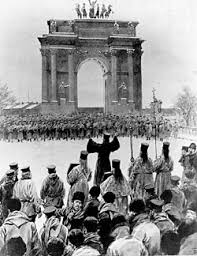Understanding Bloody Sunday: Significance and Legacy

Introduction
Bloody Sunday, which occurred on January 30, 1972, in Derry, Northern Ireland, is one of the most significant events in the history of the Northern Ireland conflict, often referred to as The Troubles. This day is remembered for the tragic shooting of unarmed civil rights protestors by British soldiers, which significantly escalated tensions and violence in the region. The events of Bloody Sunday have had lasting ramifications for civil rights movements and the political landscape of Northern Ireland, making it crucial to revisit this critical moment in history.
Details of the Incident
On that fateful Sunday, thousands of people participated in a peaceful march protesting against the policy of internment without trial. The demonstrators aimed to call attention to the injustice faced by the Catholic community in Northern Ireland. However, the British Army’s paratroopers were deployed to control the situation. Just after 3 PM, troops opened fire on the crowd, resulting in the deaths of 14 civilians, with many others injured. The aftermath saw an eruption of civil unrest and a tightening of the already volatile atmosphere in Northern Ireland.
Investigations and Impact
In the years following Bloody Sunday, there were various investigations into the incident, including the Widgery Tribunal, which was widely criticized for its findings that cleared the soldiers of wrongdoing. It wasn’t until the Saville Inquiry, initiated in 1998 and released in 2010, that the victims were formally absolved of any blame, declaring the killings unjustified. This acknowledgment was pivotal for the victims’ families and for peace efforts in Northern Ireland, as it highlighted the need for truth and accountability.
Ongoing Legacy
The significance of Bloody Sunday resonates to this day. It served as a catalyst for further civil rights campaigns and intensified discontent within nationalist communities. Over the last few decades, the memory of Bloody Sunday has been commemorated through memorials and annual marches, solidifying its place in the collective memory of Ireland and beyond. It also serves as a reminder of the ongoing struggles for justice and reconciliation.
Conclusion
As we remember Bloody Sunday, it is essential to reflect on its implications not only for Northern Ireland but also for the ongoing global struggle for civil rights and justice. The incident continues to influence discussions about human rights, policing, and the importance of truth in reconciliation processes. Moving forward, understanding the lessons of Bloody Sunday will be crucial in ensuring that similar tragedies are not repeated, both in Northern Ireland and around the world.
